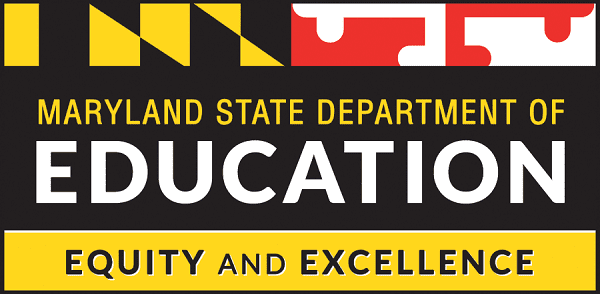BALTIMORE, MD—In tandem with the State of Maryland’s advancement into Stage 2 of Governor Hogan’s Maryland Strong: Roadmap to Recovery, the Maryland State Department of Education is moving forward as outlined in “Maryland Together: Maryland’s Recovery Plan for Child Care.” As additional family and center-based child care programs reopen, the state will transition away from unlicensed return to only authorizing licensed child care and making payments in the Child Care Scholarship program based on attendance rather than enrollment. To date, more than 5,300 licensed child providers across the state have reopened.
“We are incredibly grateful to our educators, parents and community partners for all of their outstanding efforts to provide essential persons and other parents and guardians with access to child care in these unprecedented extraordinary times,” said Karen B. Salmon, Ph.D. “As we move forward, we will be upholding our rigorous licensing standards to ensure the health and safety of children. State and local education leaders are preparing their instructional plans for the fall, and this must include provisions for students when they are not in school facilities. The Division of Early Childhood’s Office of Child Care stands ready to assist, but planning must begin now.”
Updates for this phase of Stage 2 of recovery addresses the Essential Persons School Age (EPSA) sites, Family and Friend Care, Child Care Scholarships, room size limits and ratios, and reopening of child care programs.
Essential Persons School Age (EPSA): Effective July 20, 2020, any remaining EPSA approved sites will no longer be permitted to operate. The state will return to allowing only licensed child care programs to serve families. Sites that want to continue to provide child care services should contact the regional licensing office. Information on licensing can be found here: https://earlychildhood.marylandpublicschools.org/child-care-providers/licensing.
Family and Friend Care: Effective July 20, 2020, unlicensed Family and Friend Care will no longer be allowed. A family child care home is not required to be registered if the provider: (a) is a relative of each child; (b) is a friend of each child’s parent or legal guardian and the care is provided on a non-regular basis of less than 20 hours a month (COMAR 13A.15.02). Family and friend providers wishing to continue to provide child care services should contact their regional licensing office to become a licensed family child care provider. Information on licensing can be found here: https://earlychildhood.marylandpublicschools.org/child-care-providers/licensing
Child Care Scholarships: Effective July 20, 2020, the MSDE will make payments for Child Care Scholarship invoices to all child care providers serving families in the Child Care Scholarship program based on attendance, rather than enrollment. Parents will be required to pay their mandatory co-pays, unless the parent has requested the suspension of their child care services or the provider has chosen not to reopen. The Child Care Scholarship program provides financial assistance with child care costs to eligible working families in Maryland. Parents who earn up to 65% of State Median Income are eligible (e.g., a family of four can have an income of up to $71,525 per year and qualify for a scholarship). To find out more about eligibility and how to apply for the Child Care Scholarship program, go to www.money4childcare.com.
Family Child Care Start-up Grants Increased to $1,000: The One-time Family Child Care Provider Direct grants for new providers starting their small business have been doubled from $500 to $1000 as part of Maryland’s Preschool Development Grant Birth through Age Five award and are to help registered family child care providers offset some of the costs of opening their child care programs. Eligibility is based upon certain income levels and family size. More information can be found here: https://earlychildhood.marylandpublicschools.org/fccpdgfp.
Room size limits and ratios: Group size in child care centers is expanded to a maximum of 15 individuals at a time per classroom with a ratio of no more than 1 teacher for 14 children ages three and above and the teacher must be qualified. Family child care and large family child care programs are limited to the number of children for which they are licensed at one time and no more than 15 persons total including residents. All child care programs must continue to adhere to the allowable group size by age in licensing regulations.
Reopening of child care programs: Licensed child care programs interested in reopening may contact their licensing specialist and complete a Child Care Verification of Reopening form.
Accessing Child Care: Parents and guardians in need of child care may contact LOCATE: Child Care at https://www.marylandfamilynetwork.org/for-parents/locate-child-care or talk to a specialist by calling (877) 261-0060 Monday through Friday between 8:30 a.m. and 4 p.m.
For additional information and guidance on child care in Maryland and resources and guidance regarding COVID-19, please visit the Division of Early Childhood website at https://earlychildhood.marylandpublicschools.org/.
Do you value local journalism? Support NottinghamMD.com today.

